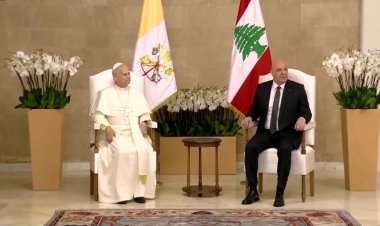HTS rebuilds Syria’s police with Islamic focus

Syria's new authorities are focused on rebuilding the police force under Hayat Tahrir al-Sham (HTS), prioritizing Islamic teachings in training. Officers from Idlib are being recruited to Damascus, with new applicants assessed on their knowledge of Islamic principles to ensure they "act justly." This approach, however, raises concerns among religious minorities such as Christians and Alawites, as well as urban Sunni Muslims wary of religious law. Western diplomats are closely observing how Islamic law will be enforced under the new regime.
HTS leaders stress their intention to build an inclusive government for all ethnic and religious groups, seeking to break away from the oppressive practices of Bashar al-Assad’s ousted regime. Assad's notoriously corrupt and feared police force has been disbanded, with its stations ransacked during the revolution. Now, the Interior Ministry is racing to fill the security vacuum, with over 200,000 applicants registering to join the new police force. Training is currently limited to 10 days, focusing on weapons handling and Islamic law, though officials aim to extend this to nine months as conditions improve.
Despite assurances of inclusivity, the emphasis on sharia law has deterred some candidates, particularly Christians and others who fear exclusion. However, defectors from Assad’s police force, including minorities, are encouraged to apply. HTS officials state that religion will not be a barrier and highlight the presence of Christian defectors among their ranks.
HTS leader Ahmed al-Sharaa claims the group has renounced ties to al Qaeda and intends to govern with moderation. Nonetheless, Western governments remain cautious about the group’s long-term intentions, particularly regarding the role of Islam in Syria’s revised constitution. While HTS seeks to portray itself as a unifying force for a post-Assad Syria, balancing religious governance with inclusivity remains a significant challenge.















